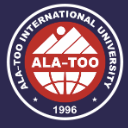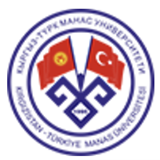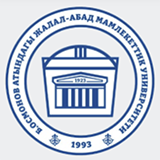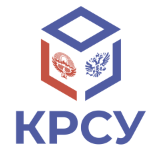Jalal-Abad State University (JSU)
Overview
Jalal-Abad State University (JSU) is a higher education institution located in Jalal-Abad, Kyrgyzstan. The school was founded in 1993 and is named after the famous Kyrgyz educator and scientist Baimat Osmonov. JSU is one of the important educational and research institutions in the southern region of Kyrgyzstan, offering a wide range of undergraduate, master's and doctoral programs in the humanities, social sciences, natural sciences, engineering technology, medicine and other fields. The school is committed to cultivating well-rounded talents with high-level professional skills and comprehensive qualities, and providing students with high-quality educational resources and practical opportunities.
Campus
The main campus of JSU is located in Jalal-Abad, covering a large area with modern teaching buildings, laboratories, libraries and student dormitories. The campus has a beautiful environment and complete facilities, providing students with a good learning and research environment. The school is also equipped with advanced information technology facilities to support online learning and distance education.
Number of students
As of the latest data, Jalal-Abad State University has about 5,000 students, including undergraduates, masters and doctoral students. The total number of faculty and staff is about 400, many of whom are well-known scholars and industry experts.
Educational philosophy
JSU is committed to cultivating well-rounded talents with high-level professional skills and comprehensive qualities. The school emphasizes the combination of theory and practice, pays attention to students' practical operation ability and professionalism, and strives to provide students with a platform for all-round development. Through high-quality education and rich practical opportunities, the school aims to cultivate future professionals and leaders for Kyrgyzstan and the international community.
Disciplines and majors
JSU has several colleges and majors, offering a wide range of undergraduate, master's and doctoral programs:
College of Humanities: covering history, philosophy, literature, art, etc.
College of Social Sciences: offering courses in sociology, psychology, political science, international relations, etc.
College of Natural Sciences: covering mathematics, physics, chemistry, biology, etc.
College of Engineering and Technology: offering courses in computer science, software engineering, electronic engineering, mechanical engineering, etc.
College of Economics and Management: covering economics, business administration, marketing, financial management, etc.
School of Law: Offers courses in law, administrative law, international law, etc.
School of Medicine and Health Sciences: Offers courses in clinical medicine, nursing, public health, etc.
Continuing Education and Training Center: Offers various vocational training and continuing education courses, including teacher training, vocational skills training, etc.
Featured Projects
Internship and Practice: Cooperate with many enterprises, government departments and research institutions to provide students with internship and practice opportunities to enhance students' practical operation ability.
Scientific Research and Innovation: Establish multiple research groups to support students and teachers in conducting research and innovation projects in the fields of humanities, social sciences, natural sciences, engineering technology, etc.
International Exchange: Establish cooperative relations with many similar colleges and research institutions in the world, and provide short-term exchange and joint training programs.
Community Service: Encourage students to participate in community service and volunteer activities to cultivate a sense of social responsibility.
Academic Conferences and Lectures: Regularly hold international academic conferences, seminars and lectures, invite well-known scholars from home and abroad to visit, and promote academic exchanges and cooperation.
Application Requirements
Undergraduates: Usually require a high school diploma, and some majors may require relevant entrance examination scores. The application period is from September to January of the following year.
Graduate students: Generally, a bachelor's degree in a related major is required, and some majors may also require relevant entrance examination scores. The application period is from October to April of the following year.
Cost
Tuition fees vary depending on the major and course. For international students, tuition fees are usually higher. Specific tuition fees and scholarship information can be found on the official website of the university.
Campus life
Accommodation: The university provides a variety of dormitory types, including single rooms, double rooms and suites, with complete facilities and comfortable environment.
Club activities: The university has many student clubs covering academic, cultural, engineering and other fields.
Sports facilities: The university provides a variety of sports facilities such as gyms, stadiums, basketball courts, football fields, etc., and encourages students to actively participate in sports activities.
Internationalization
JSU attaches great importance to internationalization and has established cooperative relations with many similar colleges and research institutions in the world, providing short-term exchange and joint training programs, and encouraging students to participate in international exchanges.
Research and Innovation
The university has carried out a lot of research work in the fields of humanities, social sciences, natural sciences, engineering technology, medicine, etc., especially in history, literature, computer science, medicine and other fields. The university has first-class laboratories and research facilities, and cooperates with many enterprises and research institutions to promote the application and transformation of scientific research results.
-

Kyrgyz Russian Slavic University
-

Kyrgyz State Technical University
-

American University of Central Asia
-

Osh Technological University named after M. Adyshev
-

Ala-Too International University
-

Kyrgyzstan-Türkiye Manas University
-

Jalal-Abad State University named after B. Osmonov
-

Kyrgyz National Agrarian University
-

Kyrgyz-Russian Slavic University named after the first President of the Russian Federation B.N. Yeltsin
-

Kyrgyz State Medical Academy
-

Mesoamerican University
-

Istmo University
-

Mariano Galvez University of Guatemala
-

Regional University of Guatemala
-

Galileo University
-

Francisco Marroquín University
-

Rafael Landívar University
-

University of the Valley of Guatemala
-

University of San Carlos of Guatemala
-

Technological Institute of Tlaxcala Plateau
-

Golfo University
-

Technological University of South Sonora
-

Technological University of Huejotzingo
-

Tizimín Institute of Technology
-

Chilpancingo Institute of Technology
